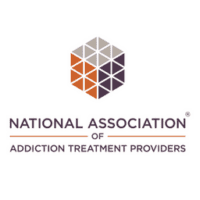What is Oppositional Defiance Disorder?
Every child misbehaves, however, for many families a child’s difficult behavior far surpasses the norm and a diagnosis of Oppositional Defiance Disorder (ODD) may be given.
ODD is seen in approximately 10.9% of children with a similar prevalence for males and females. It affects children and adolescents of all ages and can carry on into adulthood. ODD is also very commonly diagnosed along with alcohol and / or substance use disorders among teens & young adults.
The DSM V characterizes Oppositional Defiance Disorder as a pattern of behaviors that last for 6 months or longer. These behaviors are categorized into angry or irritable mood, argumentative and defiant, and spiteful or vindictive.
Symptoms that Encompass Oppositional Defiance Disorder
Common symptoms of Oppositional Defiance Disorder includes:
- Displays a short temper
- Easily irritated or set off
- Clashes with authority figures and adults
- Actively disobeys rules or requests
- Works to annoy or irritate others
- Unwilling to take responsibility for behaviors or actions
- Blames others for own misbehavior
- Shows vindictiveness or spitefulness towards others
These symptoms must occur outside of interactions with siblings, but depending on the severity, they may occur only at home or they may extend into other environments. The diagnosis never has violent behavior or criminal activity attached to it. If an individual is displaying these behaviors they may be showing symptoms of another disorder.
For ODD, it is especially important to place the child’s behavior within the context of his or her social and family setting, age, gender, and developmental progress.
Given the delicacy of identifying difficult behavior as normal or something more significant, many parents find themselves waiting for their child to grow out of it or mature beyond these patterns. However, given the long term effects that ODD can have on a child or other siblings, it is particularly important for parents to seek help if they see ongoing behavioral symptoms in their child.

Signs Your Son or Daughter May Have ODD
While there is no definitive cause of Oppositional Defiance Disorder, there are indicators and risk factors. Children who show early struggles with regulating their emotions or who easily become overly irritated are often seen at risk. Attention Deficit/Hyper-active Disorder or ADHD is also seen as a leading risk factor due to issues with impulsivity and following directives.
Patterns can develop where a child with ADHD is reprimanded for his or her behavior and this leads to the child becoming overly angry. The child sees the consequences or redirections as too controlling or domineering and pushes back harder, while the authority figure views the child as needing more structure and limitation. These indicators, while important, are not predictors for the development of ODD.
As is often the case, ODD rarely occurs on its own. It has been found that more than 90% of children and adolescent with ODD suffer from at least one other psychiatric disorder. Given the symptoms of ODD and how it can disrupts family and academic environments it is not surprising that the prevalence for a co-occurring disorder is so high.
The secondary disorders with the highest prevalence are anxiety, mood (such as depression), substance use and ADHD. A study also found ODD is usually the primary diagnosis and once treatment begins these secondary disorders come to light.
ODD Co-Occurring with Alcohol & Drug Abuse
Alcohol and drug use is also common amongst teens and young adults who struggle with ODD, with the substance abuse often used as a coping mechanism for the core underlying issues. It can also be a means to further defy authority with the substances exacerbating symptoms and increasing risky behaviors. Substance use can turn into abuse and further derail a child who is already struggling.

Oppositional Defiance Disorder Treatment Options
Due to the nature of ODD, it can be tricky to know when to seek help, however, when behavior becomes disruptive to normal functioning, it is time to ask for support. Oppositional Defiance Disorder co-occurring with alcohol or substance use can easily begin to dictate how your child and family live their lives. It can have far reaching effects on other areas of mental health and functioning.
If you or someone you know is struggling with ODD, substance abuse, or other co-occurring disorders, please contact us for help and support. Sandstone Care specializes in dual diagnosis treatment for young adults and has a highly experienced clinical team which includes an onsite psychiatrist (MD) and licensed clinicians with significant experience working with both substance abuse and mental health disorders.


Online Treatment Programs
Our virtual IOP program offers the same programming that we offer in person, all online – this is ideal for those who live too far to drive to an addiction center, have transportation issues, or have health concerns that make in-person treatment challenging.
Our Accreditations










